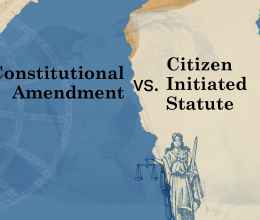CLEVELAND — A federal judge just ordered the Bureau of Prisons to expedite the release of 837 medically vulnerable prisoners in Elkton FCI through home confinement and compassionate release, citing “poor progress in transferring the subclass members out of Elkton through the various means referenced in the Court’s preliminary injunction Order.” This class action habeas petition was brought by the ACLU of Ohio and the Ohio Justice and Policy Center on April 13.
Per the court’s order, “Of this 837 vulnerable population, [the Bureau of Prisons] has made only minimal effort to get at-risk individuals out of harm’s way.” As of May 8, a mere 5 individuals were approved for home confinement, and 1 was deemed to qualify for compassionate release. “By thumbing their nose at their authority to authorize home confinement,” the judge wrote, the Bureau of Prison “threaten staff and they threaten low security inmates.”
Testing continues to happen at a woefully inadequate pace, and the numbers publicized by the Bureau of Prisons are inconclusive as to how many individuals are COVID-19 positive. In any event, the judge noted that testing “can only go so far in helping the institution fight the pandemic,” while social distancing “has been, and continues to be, the institution’s best hope” for fighting the disease’s spread.
“The federal government has attempted to stall and delay the release of medically-vulnerable individuals at every single turn. Today’s ruling confirms the urgent need to comply with the Court’s order and respond to the crisis in an efficient and expedient manner. Lives of prisoners, prison staff, and the community depend on swift action to move the most vulnerable people away from the COVID-19 outbreak before it is too late,” added ACLU of Ohio Senior Staff Attorney David Carey.
"Just as we expect the government to respect the Constitution, we expect the government to respect federal court orders. We will continue to push on with this case to hold the government accountable for both," noted Joseph W. Mead, cooperating attorney for the ACLU of Ohio.
"The court’s ruling reflects the need for immediate action to protect the health and lives of the many, many at-risk people currently imprisoned at this low-security federal facility,” said OJPC Executive Director David Singleton.








